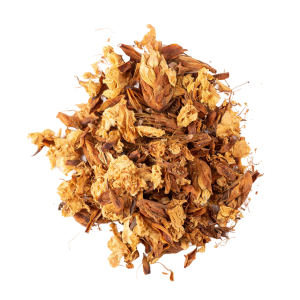Tea and tourism
In the contemporary world, societal shifts have led to a significant migration of populations from rural farmlands to bustling cities. Consequently, the intimate knowledge and understanding of agricultural practices, once commonplace, have faded into the background. Often, we are exposed only to the final products neatly displayed on supermarket shelves, oblivious to the journey they undertook to get there. This disconnection has left a knowledge gap, and the inherent curiosity of humans naturally seeks to bridge this divide. This curiosity, coupled with the desire for authentic experiences, fuels the increasing demand for agro-tourism. It offers an immersive dive into the heart of production processes, allowing individuals to reconnect with the roots of the simple products that form part of their daily lives.
The process of tea production presents a compelling opportunity for such immersive experiences. As one of the world's most consumed beverages, tea has a fascinating journey from leaf to cup - a journey that remains largely unseen by the average consumer. Exploring tea plantations, understanding cultivation practices, observing processing techniques, and ultimately tasting the fruits of this labour - these are experiences that allow individuals to reconnect with the roots of their beloved beverage, satisfying their curiosity while enriching their appreciation for the simple, soothing cup of tea.
Tea industry in Imereti
The dawn of Georgia's independence from the Soviet Union in the early 1990s did not bring immediate prosperity for all sectors. As the nation transitioned to independence and grappled with the turmoil of civil war, the tea industry, which once flourished, suffered a devastating blow. Imereti, along with other tea-producing regions of Georgia, was caught in the vortex of political unrest and economic instability.
The operational tea plantations that had once carpeted the Imereti landscape gradually fell into disrepair. A lack of resources, coupled with the instability of the period, led to the abandonment of these tea estates, marking a period of decline for the region's once vibrant tea culture. The lush, green rows of tea plants were gradually reclaimed by nature, concealing beneath their wild growth the echoes of a once-thriving industry.
Today, as the tea industry undergoes a phase of rehabilitation, an opportunity has arisen to invite the world to experience Imereti's unique tea culture first-hand. This fusion of tea and tourism carries the potential to not only breathe life back into the region's tea plantations but also to stimulate the local economy, preserve cultural heritage, and foster sustainable development.
Tourism
Georgia managed to attract the travelers attention and in recent years, Georgian tourism has seen substantial growth, with increasing visitor numbers year on year. The sector has become a key driver of the economy, creating jobs, supporting local businesses, and encouraging cultural exchange. For Imereti, tourism has brought renewed attention to its cultural heritage and natural beauty, providing an opportunity for the region to showcase its potential.
The emergence of various forms of niche tourism, such as ecotourism, adventure tourism, and gastronomic tourism, has further diversified the Georgian tourism industry. This trend is particularly advantageous for regions like Imereti, which hold a rich tapestry of culinary, cultural, and natural attractions.
Despite the growth, the Georgian tourism sector still has untapped potential. One such area of opportunity lies in the intersection of its burgeoning tourism industry and the revitalization of its once-renowned tea industry. The concept of tea tourism offers a unique blend of cultural immersion, agro-tourism, and gastronomy, appealing to tourists seeking a more engaged and authentic travel experience. As Imereti sets on its journey to revive its tea industry, this opportunity to integrate tea and tourism could be a significant step towards a sustainable and culturally enriching future for the region.
Intersection
As the two emerging sectors of Imereti's economy, tea and tourism, start to chart new paths towards revitalization and growth, an exciting opportunity emerges at their intersection. The concept of tea tourism, a relatively niche yet growing global phenomenon, could offer a transformative avenue for the region. By combining growing interest in tea cultivation with the experiential demands of modern tourism, Imereti has the potential to create a unique, sustainable, and culturally immersive tourism product.
Tea tourism essentially involves inviting tourists to visit tea estates and factories, allowing them to participate in and understand the process of tea making - from plucking the fresh tea leaves to brewing the perfect cup. More than just witnessing the tea production process, visitors are provided with an authentic experience of the local culture and history, often involving interactions with the tea farming community and, of course, tasting the various tea offerings.
The region can showcase its unique Black Sea influenced tea variety gown on a higher elevation, offer a firsthand look at the rejuvenation process of the industry combined with the distinct flavour of the tea.
Moreover, the integration of tea tourism into the broader tourism sector can further diversify overall tourism complementing and enhancing the existing offerings. For instance, a tea tour could be paired with a visit to the historic and natural sites in upper Imereti.
Of course, developing tea tourism is not without its challenges. It requires careful planning, investment, and collaboration among various stakeholders, including the tea farmers, tour operators, government agencies, and local communities. However, with the right strategies and commitments in place, the fusion of tea and tourism in Imereti could brew a promising blend of economic development, cultural preservation, and sustainable practices.
All the members of the association are open to hosting the travellers in their plantation and facilities. If you are interested in such an experience you can find the contact detail of the tea producers on the following link -https://demo.mountaintea.ge/en/producers
